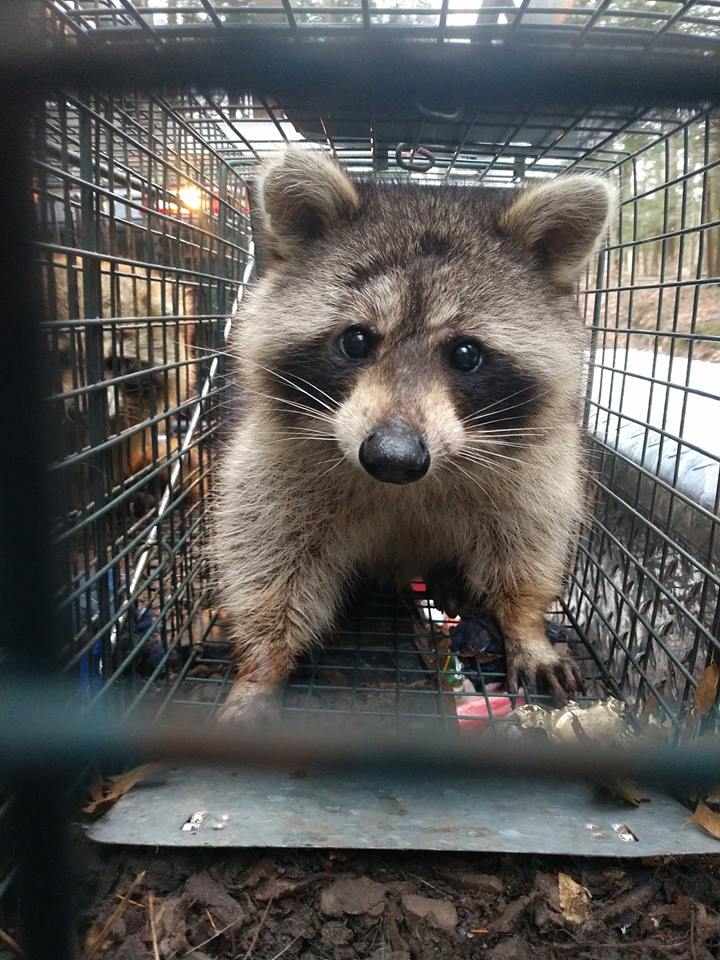Raccoons prefer living in hardwood forests near streams, rivers, swamps, or ponds. Even though they are nocturnal, raccoons may be active during the day, especially in the spring and summer. They are highly adaptable and are found in both suburban and urban areas.
Raccoons are excellent climbers and use this ability to enter buildings by climbing trees or downspouts. Raccoons can cause damage or nuisance problems in a variety of ways. They can scratch at corners of your house or building and can also tear off shingles or fascia boards to gain access. Raccoons also will roll up freshly laid sod in order to search for food like grubs and earthworms.

Raccoons can be a health risk to you and your pets. They are typically associated with rabies and raccoon roundworm. Over the past 30 years, the incidence of reported cases of rabies in raccoons and other wildlife has increased dramatically. Because of this, it’s important that you are safe when dealing with your raccoon removal. Call us today for a free quote for removing your raccoon problem and sealing up your location so that they do not return.
Raccoons are generally solitary, except for females with young. They are nocturnal but may be active during the day, especially in the spring and summer when the female is nursing and raising young. Adult males occupy territories of 3 to 20 square miles, compared to 1 to 6 square miles for females. Adult males tend to be territorial and their ranges overlap very little.
Raccoons prefer hardwood forests near streams, rivers, swamps, or ponds. They also occur around farmsteads and livestock watering areas, far from naturally occurring bodies of permanent water. They are highly adaptable and are also found in suburban and urban areas.
Give us a call today! 315-383-9944
